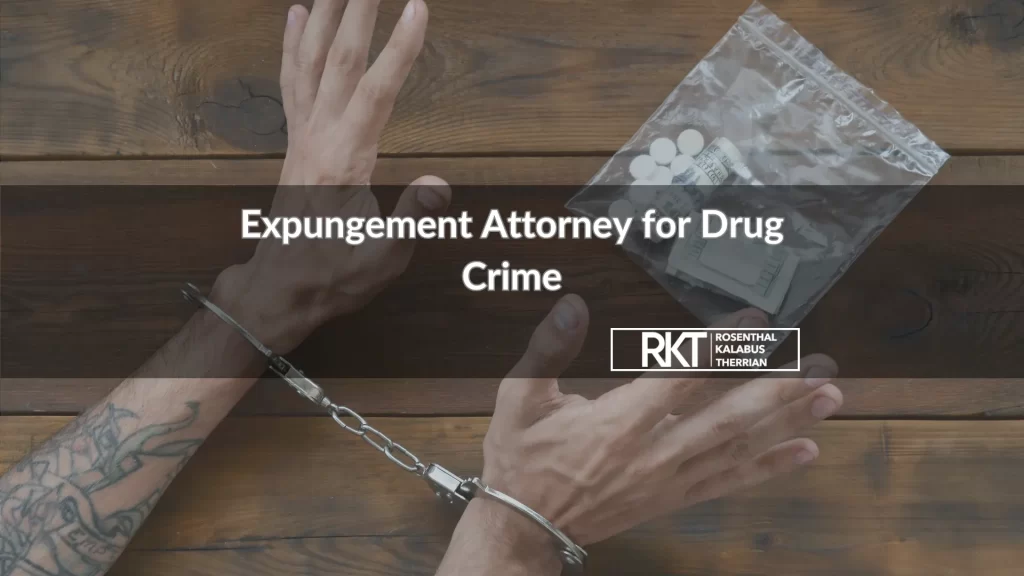
If you’ve been arrested and charged with a drug crime, there could be consequences for the rest of your life. You may face years in prison if you are found guilty or negotiate a reduced sentence. Also, you may face a substantial fine. You may be eligible for an expunction if you were not ultimately convicted. Contact or expunction attorneys for drug crimes for a free consultation to see if you are eligible.
 Yet, after you’ve been released, you may continue to be punished in society. Your conviction can affect your ability to rent an apartment, get insurance, and limit employment opportunities. In addition, drug convictions and prison sentences can affect your personal relationships.
Yet, after you’ve been released, you may continue to be punished in society. Your conviction can affect your ability to rent an apartment, get insurance, and limit employment opportunities. In addition, drug convictions and prison sentences can affect your personal relationships.
Unfortunately, even if your charges are dropped, or you’re acquitted, you may continue to face long-term consequences. After you’ve paid your debt to society, you should be able to move on.
The Collin County expungement lawyers of Rosenthal Kalabus & Therrian understand that these unfair consequences can create real problems for your future. Our expungement attorneys are experienced and skilled negotiators and litigators.
We’ve helped many of our clients have their drug crimes expunged from their criminal records. Call our office today at (972) 369-0577 for a free consultation to find out our expunction attorneys for drug crimes can get your arrest expunged from your record.
Drug Charges in Texas
Texas takes drug crimes seriously. If you’ve been charged with any drug crime in Texas, you need an experienced attorney to fight for your freedom and future aggressively. Your case could be heard in federal court depending on the weight and type of drugs involved and whether the offense occurred across state lines or national borders. Three of the more common drug arrests are for possession of cocaine, marijuana, or methamphetamines.
Cocaine Charges in Texas
It is illegal to possess, manufacture, or deliver cocaine. If you are a first-time offender with one gram or less, your criminal defense attorney may negotiate your sentence down to probation instead of jail time. To put things into perspective, one ounce equals 28.3 grams, and 400 grams equals 14.1 ounces.
- Just one gram of cocaine is enough to bring felony charges. Plus a prison sentence of up to two years and a maximum fine of $2,000.
- Over one gram to four grams is a third-degree felony. It comes with fines of up to $10,000 and up to 10 years in jail.
- The fines and jail time increase with larger amounts of cocaine. Ultimately, you may be fined up to $100,000 and 99 years in prison if you possess over 400 grams of cocaine.
Marijuana Charges in Texas
Although marijuana is legal in some states, Texas maintains harsh punishment for possession or use of marijuana. If you intentionally have care, custody, or control of marijuana, you have marijuana. The punishments will depend on the amount in your possession.
- Under two ounces, you are charged with a Class B misdemeanor. This can net as many as 180 days in county jail or a fine of up to $2,000.
- Possession of two to four ounces is a Class A misdemeanor. It comes with up to a one-year jail sentence and a $4,000 fine.
- Possession of any amount more than four ounces is a felony. Possessing up to five pounds can result in up to two years in jail and a $10,000 fine.
- Possession of over 2,000 pounds implies large-scale sale and distribution. That comes with a prison sentence of up to 99 years and a fine of $50,000.
You may also be charged with trafficking, delivery, or sale of marijuana. Your jail time and fines will depend on the amount you sold and whether you sold to a minor.
Methamphetamine Charges in Texas
The Texas Controlled Substances Act regulates the possession, distribution, and manufacture of methamphetamines. These are also known as meth or crystal meth.
- Under 1 gram can lead to a fine of $10,000 and up to 2 years in prison.
- Between 1 gram and 3.99 grams of meth is a third-degree felony and can come with up to 10 years in prison and a $10,000 fine.
- When you have 4 grams to 199 grams of meth in your possession, you can be charged with a second-degree felony and 20 years in prison and $10,000.
What’s the Difference Between Expunction and Non-Disclosure?
There are two ways to address your criminal record. One is expunction, and the other is non-disclosure. A non-disclosure order means people are prohibited from getting their arrest or criminal record if they apply for employment or residency in an apartment. Access to your criminal or arrest record is not available to them.
 Some offenses cannot be considered for non-disclosure. These can include second and third-offense DWIs and any offenses requiring you to be registered as a sex offender. Other offenses that disqualify you from non-disclosure include injury to a child, family violence, violation of a protective order, and murder.
Some offenses cannot be considered for non-disclosure. These can include second and third-offense DWIs and any offenses requiring you to be registered as a sex offender. Other offenses that disqualify you from non-disclosure include injury to a child, family violence, violation of a protective order, and murder.
This means that if you were charged with drug possession and family violence, the drug possession might be considered non-disclosure. But your family violence charge cannot be covered in a non-disclosure agreement.
An expunction in a criminal charge means it is completely erased from your record. This is an option if you were not convicted of the crime or were pardoned after conviction. For example, if you were arrested and charged but found not guilty, the court could remove the charge from your record.
However, expungement is not an option if you plead guilty or were found guilty. Additionally, there can be time constraints involved in your request. For example, you have three years after your arrest date for a felony to request expungement but only one year after your arrest date for a Class A or B misdemeanor.
Can My Drug Charges Be Expunged?
The process of requesting that a possession charge be expunged can be complicated. However, the experienced attorneys from Rosenthal Kalabus & Therrian understand the legal ramifications and time constraints required to ensure you have the greatest chance of success.
Under Texas law, if you were arrested for a felony or misdemeanor drug offense, it can be expunged if the arrest does not lead to a charge or the case was dismissed for insufficient evidence or lack of probable cause. Additionally, if you are charged and your case goes to trial, you qualify for expungement if you’re not guilty.
You might also be eligible if you were convicted of a crime, but the conviction was later overturned, and you were found innocent. The essential element important to expungement is that you are not convicted of the crime. Or if you were convicted, you were later found innocent.
Get Rosenthal Kalabus & Therrian to Help Expunge Your Drug Charges
If you have been charged with a drug offense, our legal team understands the consequences this can have on your life. If you have questions about getting your drug charges expunged from your record, call the Collin County expunction attorneys of Rosenthal Kalabus & Therrian today.
We might be able to help you get a court order to clear your record. This means that your past criminal record does not encumber your future. Call our office today at (972) 369-0577. You can schedule a free consultation with one of our expunction attorneys for drug crimes and learn about the options available to you.